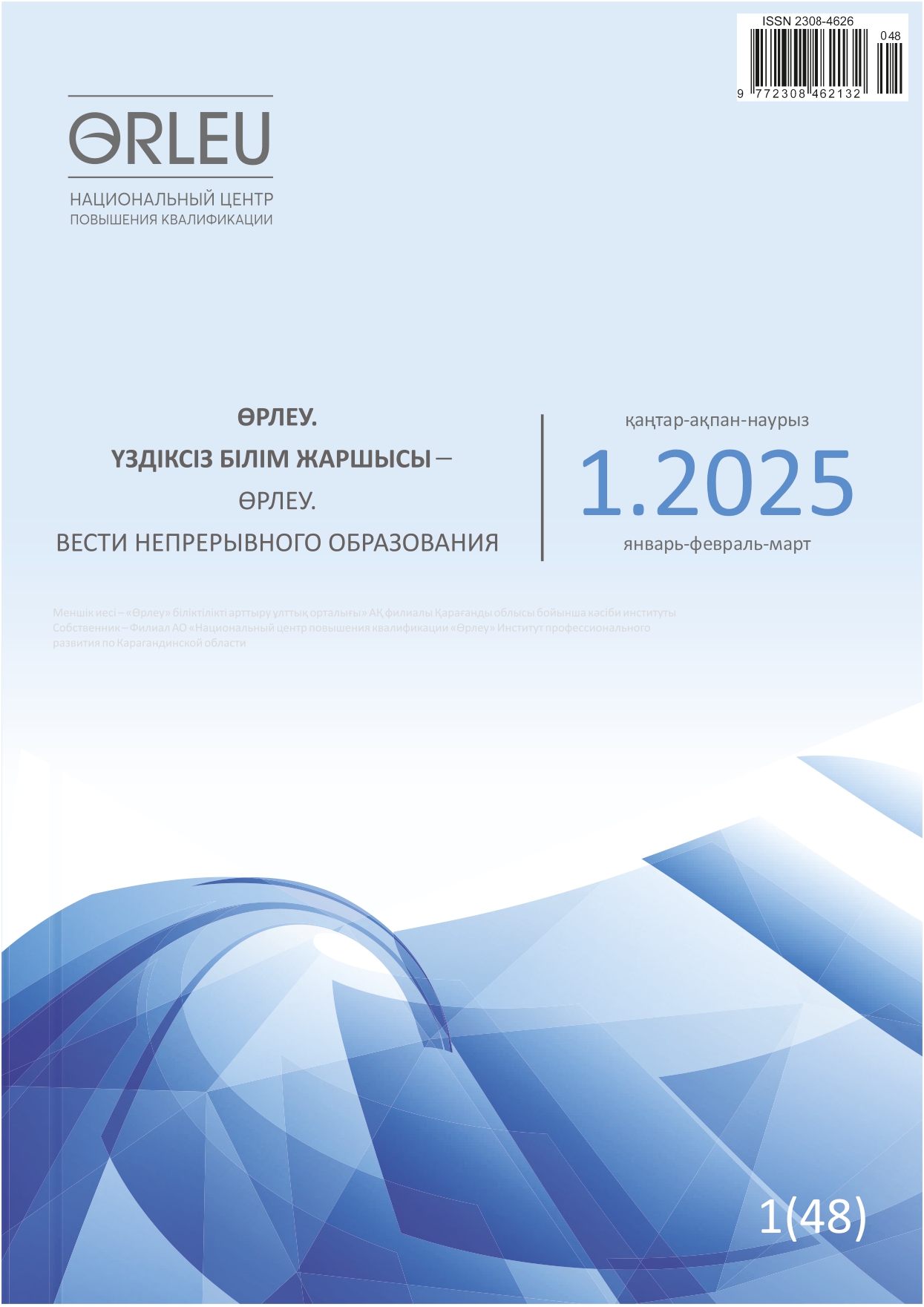Abstract
The Concept of development of preschool, secondary, technical and vocational education of the Republic of Kazakhstan for 2023-2029 emphasizes the importance of continuous professional development of teachers as a priority direction of the development of the education system of Kazakhstan. Among a number of issues, the problem of "insufficient qualification of teachers in studying lessons, research in activities" is identified. One of the forms of studying the lesson is the "Lesson Study".
Lesson Study is a pedagogical approach, which is a special form of solving pedagogical problems, problems of teaching in the classroom, contributing to the improvement of pedagogical practice. The Lesson Study approach focuses on improving the learning experience through teacher collaboration, sharing experiences, and collaborative lesson planning and analysis.
Since 2012, every fifth teacher in Kazakhstan has been trained in level courses; their post - course support is based on Lesson. However, the format of open lessons prevails in the school as part of educational and methodological work. During the teacher's certification, at the end of an open lesson, an institutionally established "Lesson Observation Sheet" is filled in, the "Lesson Study" approach and the corresponding forms of observation do not have such a status.
The present study substantiates the need to institutionalize the "Lesson Study" approach as a tool for ensuring the professional development of a teacher. A comparative analysis of the methodology for conducting "open lessons" in Kazakhstan and the methodology for implementing the "Lesson Study" approach in Japan is carried out based on the analysis presented in the teaching manual "Teacher's Guide to the implementation of the "Lesson Study" approach".


